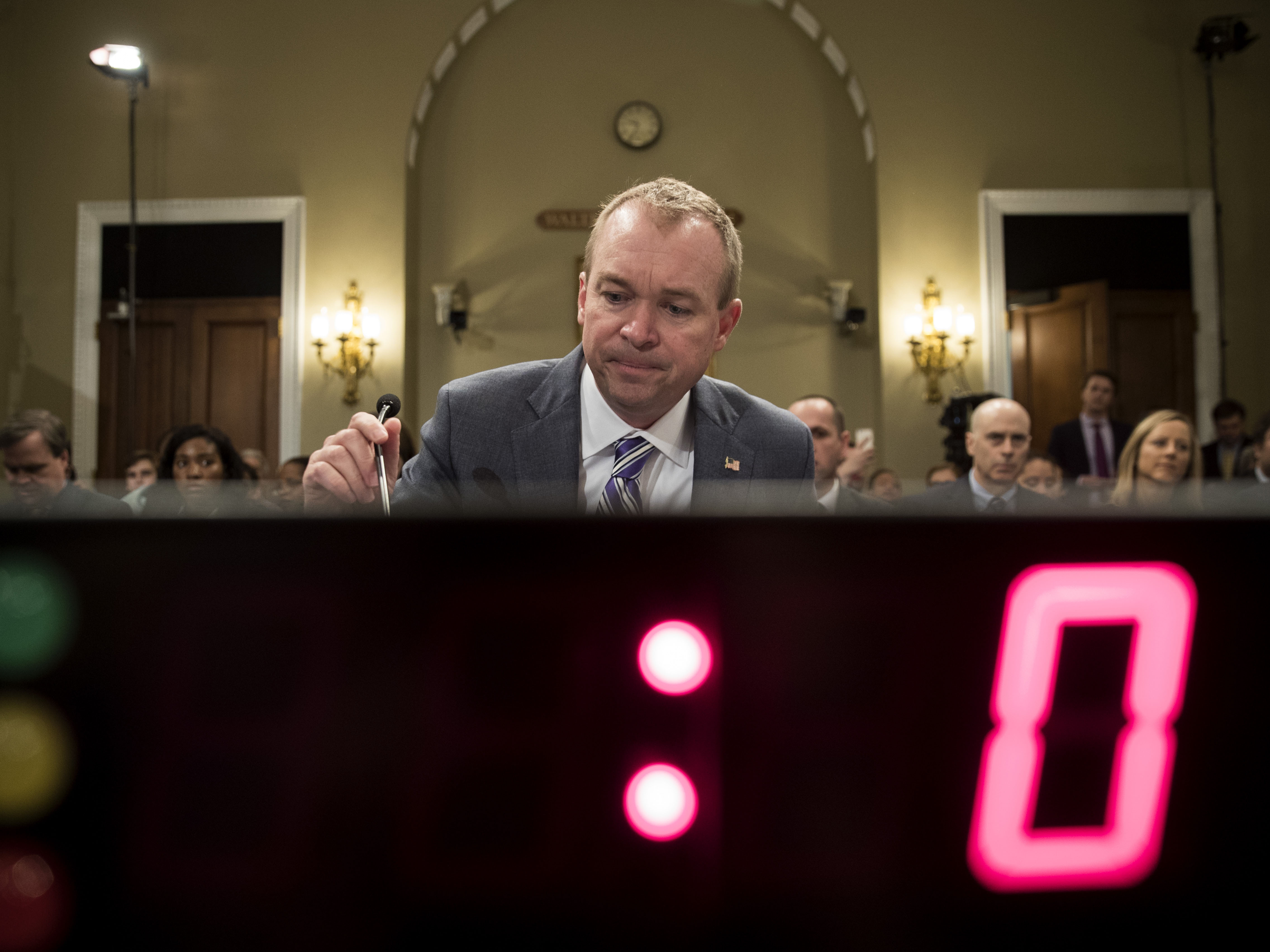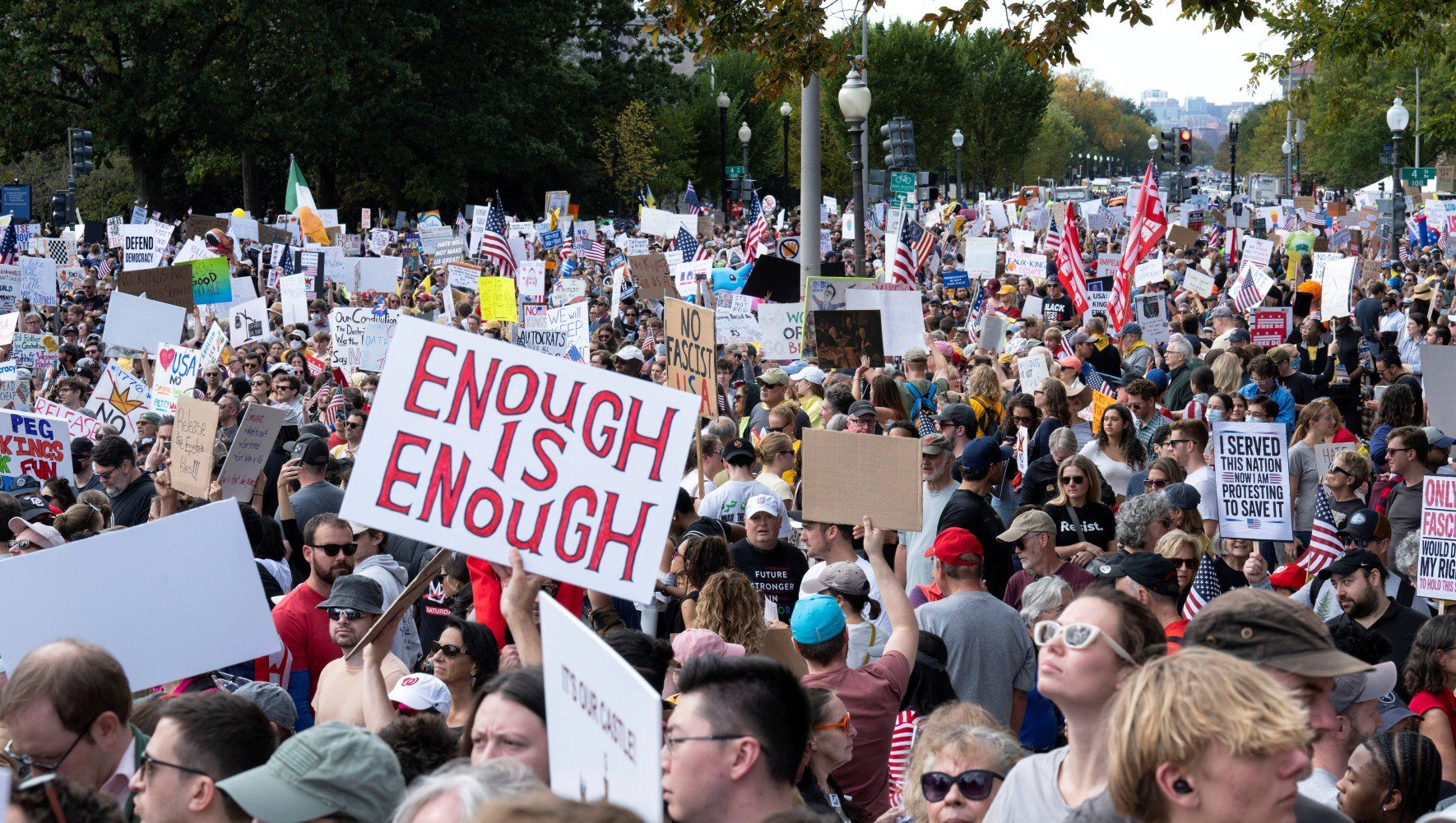The Real Costs of Trump’s Proposed Budget for Refugees
By Elizabeth Mandelman, Associate Director of Advocacy
May 25, 2017

Director of the Office of Management and Budget Mick Mulvaney arrives for a House Budget Committee hearing concerning the Trump administration's fiscal year 2018 budget, on Capitol Hill, May 24, 2017 in Washington, DC.
(Drew Angerer/Getty Images)
On Tuesday, President Trump proposed a budget for 2018 that includes a recommendation that would lower the number of refugees the United States resettles to 50,000.
Since 1980, the U.S. has set an average resettlement goal of 95,000 each year, and has resettled an average of 85,000 refugees per year. However, the figures included in this budget imply an overall reduction in the number of refugees to be welcomed to the U.S. next year—a worrying implication in the midst of the greatest refugee crisis in recorded history.
In response, HIAS is advocating that the U.S. resettle at least 75,000 refugees in 2018, and that adequate funding levels be allocated to the programs that support refugees both domestically and overseas.
Another major concern is that this proposal slashes the chronically underfunded programs that assist refugees both domestically and abroad.
The president’s budget proposal cuts the Refugee and Entrant Assistance program, which funds the Office of Refugee Resettlement, by more than 31 percent. In addition to serving refugees, ORR also assists asylees, unaccompanied refugee and asylum-seeking children, Cuban and Haitian entrants, and Iraqi and Afghan Special Immigrant Visa recipients.
The services that ORR provides to refugees and other populations are imperative to their long-term success and integration in the U.S., and cuts to the program would harm refugees and the communities that welcome them. ORR oversees the domestic side of U.S. resettlement and helps to facilitate the integration and economic success of refugees in the U.S. by providing services like employment training, housing assistance and case management. Reducing funds to ORR will negatively impact social services, such as English as a Second Language training and support for schools serving refugee children, which are imperative to achieving economic independence and self-sufficiency.
The proposed budget also slashes funding for important State Department programs that provide lifesaving support to refugees and other vulnerable populations, like internally displaced people, who are trapped in humanitarian emergencies overseas, like those in Syria and South Sudan. Migration and Refugee Assistance, which faces a 10 percent cut under Trump’s proposal, provides assistance to refugees overseas by ensuring protection during crises, and supports admission to the U.S. for the most vulnerable. International Disaster Assistance, which supports humanitarian assistance to internally displaced people overseas, would be slashed by 34 percent. And Emergency Refugee Migration Assistance, a program in place to respond to emergency regional displacement and instability around the globe, would be completely eliminated under the Trump Administration’s budget proposal.
By drastically cutting or wholly eliminating these funding sources, the proposed budget would significantly harm U.S. leadership in an area where we normally excel as an example to the world—providing lifesaving humanitarian assistance to refugees and displaced people, and the countries overseas that host them.
In the midst of a global refugee crisis, the United States must not walk away from its spot as a world leader when it comes to assisting refugees and other vulnerable populations both here and abroad. The administration’s proposal is incredibly worrying in that regard.
It’s up to Congress to substantially address these concerns, as the power to draw up and approve a budget ultimately lies with them.
Take Action: Urge Congress to Pass a 2018 Budget That Supports Refugees


